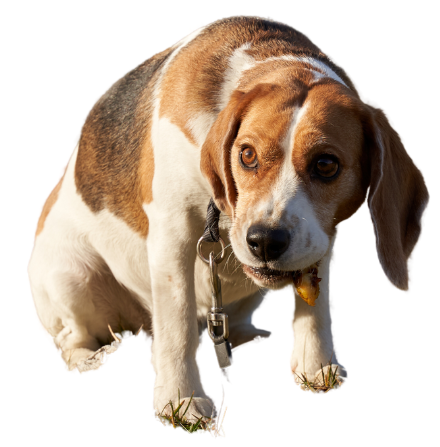How To Stop A Dog From Eating Poop
It’s a common and unpleasant behaviour for some dogs to eat their own or other animals’ faeces. This behaviour, known as coprophagia, can be both unsightly and unhygienic. If you’re a dog owner dealing with this issue, there are several strategies you can employ to help your dog break this habit. While it may take time and patience, with consistency and positive reinforcement, you can stop your dog from eating poop. Here are some effective methods to consider:

1
Keep the environment clean
Ensure that your dog’s living area and garden are regularly cleaned of feaces. By eliminating the temptation, you reduce the likelihood of your dog engaging in coprophagia. Dispose of waste promptly and thoroughly to discourage your dog from exploring and consuming it.
2
Provide a balanced diet
Ensure your dog is receiving a nutritionally balanced diet that meets their specific dietary needs. Sometimes, coprophagia can be a sign of a nutrient deficiency. Consult with your veterinarian to make sure your dog’s food is providing them with all the necessary nutrients.
3
Avoid punishment
Yelling or punishing your dog for eating poop may create fear and anxiety, making the behaviour worse. Instead, focus on positive reinforcement and reward-based training methods to encourage alternative behaviours.
4
Train the "Leave it" cue
Teaching your dog a reliable “Leave it” cue is essential. Start by using treats or toys and practicing the cue in various scenarios. Once your dog understands the cue apply it when they show interest in faeces. When they respond appropriately by leaving it, reward them with praise and treats.
5
Distract and redirect
If you catch your dog in the act of eating poop, distract them by calling their attention or offering a more enticing alternative, such as a favourite toy or treat. This helps redirect their focus and teaches them that engaging in coprophagia is not rewarding.
6
Increase exercise and mental stimulation
A bored or under-stimulated dog may resort to undesirable behaviours like eating poop. Ensure your dog receives adequate physical exercise and mental stimulation through daily walks, training games, playtime, and interactive toys. A tired and mentally stimulated dog is less likely to engage in coprophagia.
7
Consistency is key
Break the habit of coprophagia by being consistent with your training efforts. Reinforce positive behaviours consistently and discourage negative behaviours every time they occur. Over time, your dog will learn that not eating poop is the expected behaviour.
8
Seek veterinary advice
If your dog’s coprophagia persists despite your efforts, it is essential to consult with your veterinarian. They can help determine if there are any underlying medical conditions contributing to the behaviour and provide guidance on additional training or behavioural modification techniques.
Remember, breaking the habit of coprophagia requires time and patience. It is important to remain consistent in your approach and to provide positive reinforcement for desired behaviours. With a combination of environmental management, training, and a balanced diet, you can help your dog overcome this unpleasant behaviour and create a healthier and happier environment for both you and your furry friend.
